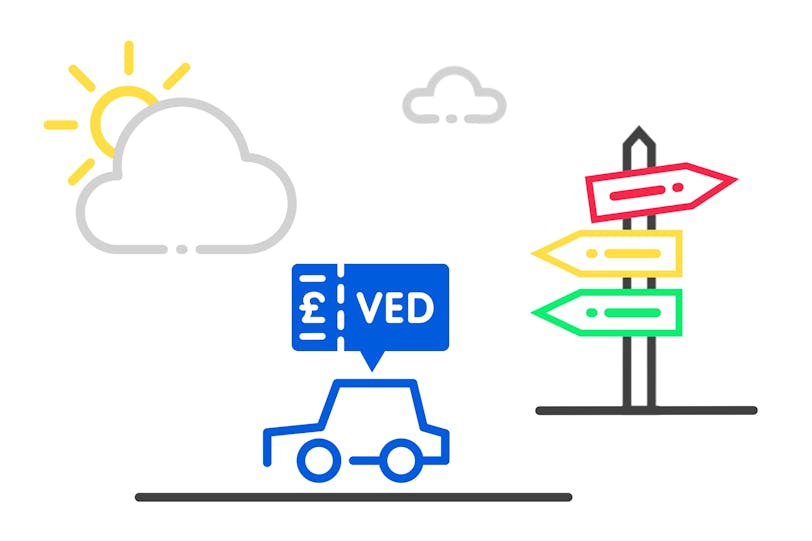April 2025 EV road tax changes: what you need to know
From April 2025, electric vehicles will no longer be exempt from road tax (VED) in the UK. Discover how much you’ll pay, what it means for your lease, and how it affects EV affordability.
FAQs about EVs and Road Tax
If you're leasing or planning to lease an electric vehicle (EV), there’s an important change coming: from April 2025, EVs will no longer be exempt from road tax (Vehicle Excise Duty or VED).
You may have questions about how these updates will affect you. Below, we break down what’s changing, who it affects, and what it means for EV affordability in the UK.
Good to know
-
The VED changes coming in April this year will affect both new and existing electric vehicles
-
The amount of VED payable will depend on the vehicle's emissions, registration date and list price (for new electric cars)
-
Overall, the new VED rules mean that electric car owners will have to pay road tax for the first time
-
However, the rates are still significantly lower than those for petrol and diesel vehicles, and the government hopes that the changes will encourage the uptake of electric vehicles
Are electric vehicles (EVs) exempt from road tax in the UK?
Yes, as of now, fully electric vehicles are exempt from paying VED. However, this will change from April 2025 when EVs will become subject to road tax like petrol and diesel cars.
Why is road tax being introduced for EVs?
The UK government is introducing VED for electric vehicles to create a fairer system across all vehicle types and to make up for lost fuel duty revenue as drivers switch to EVs.

How much road tax will EV owners pay?
Vehicle registration date |
Annual VED (from April 2025) |
|---|---|
Between 1 April 2017 - 31 March 2025 |
£195 (standard rate) |
Before 1st April 2017 |
£20 (reduced rate) |
On or after 1 April 2025 (Year 1) |
£20 |
On or after 1 April 2025 (Year 2+) |
£195 or £620* |
Are electric vans subject to road tax in 2025?
Yes, electric vans will also be subject to road tax from April 2025. Currently, light commercial EVs benefit from a zero-VED rate, but they will soon be required to pay the same standard rates as other light goods vehicles. This means businesses and individuals using electric vans should anticipate additional costs, though EV vans will still offer lower running costs compared to their petrol or diesel counterparts.

Will plug-in hybrid vehicles have to pay full road tax?
Yes, plug-in hybrid vehicles (PHEVs) will also see an increase in VED. From April 2025, they will no longer benefit from reduced rates and will pay the same standard rates as petrol and diesel cars.
Will this affect company car tax for EVs?
No, Benefit-in-Kind (BiK) tax rates for company EVs remain significantly lower than those for petrol and diesel vehicles, making them an attractive option for business users.
Will this affect drivers who lease their EVs?
Yes and no. When you lease an electric car, VED is usually included in your monthly lease cost. However, if your lease stretches into the new tax period, your lease provider may issue a one-time adjustment invoice to reflect the new road tax rate. This is usually a small adjustment, as standard rate of VED increases gradually year on year.
However since EVs have previously paid £0 VED, the increase will be more noticeable for PCH and BCH customers this year.
📞 Have questions about how this change might affect your lease?
Contact our team or browse our latest EV lease deals.
Will EVs still be cheaper to run?
Yes, despite the introduction of VED, electric cars still offer:
- Lower fuel and maintenance costs
- Tax advantages (especially for company cars)
- Exemptions from Congestion Charge and clean air zone (think ULEZ) charges
- Government incentives for certain models
EVs remain a cost-effective and environmentally friendly choice for drivers across the UK.
For more information read our guide:
Understanding Vehicle Excise Duty (VED) or "Road Tax" for EVs



